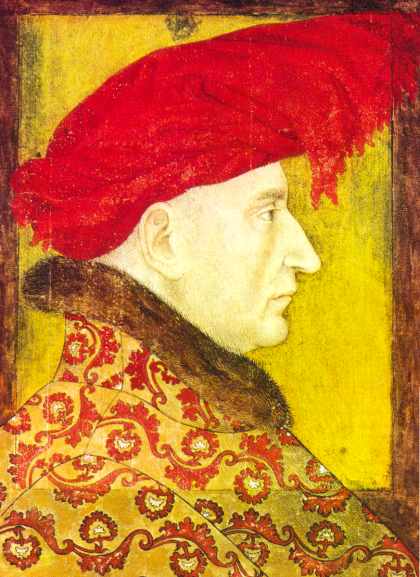|
Laurie Menviel
Laurie Menviel or L. Menviel; Laurie Menviel is a palaeoclimatologist, and a Scientia fellow, at the University of New South Wales, who was awarded a Dorothy Hill Medal in 2019. Career and education Menviel was awarded a Masters of Geochemistry at the University of Aix-Marseilee, France, in 2002, and then a PhD in Chemical Oceanography at the University of Hawaii, in 2008. Menviel's research includes studies on ocean circulation, the carbon cycle and paleoceanography. She has published on ocean circulation, the variability of ocean circulation and the impact of this variability on planetary climate, as well as carbon cycles, as well as on the cryosphere. Menviel has published on earth science, including the role of ocean circulation on both the future and past climate changes, particularly abrupt changes. She has also worked on evaluating the impact of changes in the circulation of the ocean, and how this influences the carbon cycle, as well as the Antarctic ice sheet, and it ... [...More Info...] [...Related Items...] OR: [Wikipedia] [Google] [Baidu] |
University Of New South Wales
The University of New South Wales (UNSW), also known as UNSW Sydney, is a public research university based in Sydney, New South Wales, Australia. It is one of the founding members of Group of Eight, a coalition of Australian research-intensive universities. Established in 1949, UNSW is a research university, ranked 44th in the world in the 2021 ''QS World University Rankings'' and 67th in the world in the 2021 ''Times Higher Education World University Rankings''. It is one of the members of Universitas 21, a global network of research universities. It has international exchange and research partnerships with over 200 universities around the world. According to the 2021 QS World University Rankings by Subject, UNSW is ranked top 20 in the world for Law, Accounting and Finance, and 1st in Australia for Mathematics, Engineering and Technology. UNSW is also one of the leading Australian universities in Medicine, where the median ATAR (Australian university entrance examination re ... [...More Info...] [...Related Items...] OR: [Wikipedia] [Google] [Baidu] |
Paleoclimatology
Paleoclimatology (British spelling, palaeoclimatology) is the study of climates for which direct measurements were not taken. As instrumental records only span a tiny part of Earth's history, the reconstruction of ancient climate is important to understand natural variation and the evolution of the current climate. Paleoclimatology uses a variety of proxy methods from Earth and life sciences to obtain data previously preserved within rocks, sediments, boreholes, ice sheets, tree rings, corals, shells, and microfossils. Combined with techniques to date the proxies, the paleoclimate records are used to determine the past states of Earth's atmosphere. The scientific field of paleoclimatology came to maturity in the 20th century. Notable periods studied by paleoclimatologists are the frequent glaciations that Earth has undergone, rapid cooling events like the Younger Dryas, and the rapid warming during the Paleocene–Eocene Thermal Maximum. Studies of past changes in the environm ... [...More Info...] [...Related Items...] OR: [Wikipedia] [Google] [Baidu] |
Aix-Marseille University
Aix-Marseille University (AMU; french: Aix-Marseille Université; formally incorporated as ''Université d'Aix-Marseille'') is a public research university located in the Provence region of southern France. It was founded in 1409 when Louis II of Anjou, Count of Provence, petitioned the Pisan Antipope Alexander V to establish the University of Provence, making it one of the oldest university-level institutions in France. The institution came into its current form following a reunification of the University of Provence, the University of the Mediterranean and Paul Cézanne University. The reunification became effective on 1 January 2012, resulting in the creation of the largest university in the French-speaking world, with about 80,000 students. AMU has the largest budget of any academic institution in the Francophone world, standing at €750 million. It is consistently ranked among the top 200 universities in the world and is ranked within the top 4 universities in France ac ... [...More Info...] [...Related Items...] OR: [Wikipedia] [Google] [Baidu] |
Dorothy Hill Medal
The Dorothy Hill Medal is awarded annually and honours the contributions of the late Professor Dorothy Hill to Australian Earth science and her work in opening up tertiary science education to women. The award supports research in the Earth sciences by female researchers up to 10 years post doctorate for research carried out mainly in Australia. Prior to 2018 the award was known as the Dorothy Hill Award. Recipients SourceAustralian Academy of Science See also * List of earth sciences awards This list of earth sciences awards is an index to articles on notable awards for earth sciences, or natural science related to the planet Earth. It includes awards for meteorology, oceanography and paleontology, but excludes awards for environmenta ... References {{Australian Academy of Science Earth sciences awards Australian Academy of Science Awards Australian science and technology awards Awards established in 2002 Science awards honoring women ... [...More Info...] [...Related Items...] OR: [Wikipedia] [Google] [Baidu] |
Australian Academy Of Science
The Australian Academy of Science was founded in 1954 by a group of distinguished Australians, including Australian Fellows of the Royal Society of London. The first president was Sir Mark Oliphant. The academy is modelled after the Royal Society and operates under a Royal Charter; as such, it is an independent body, but it has government endorsement. The Academy Secretariat is in Canberra, at the Shine Dome. The objectives of the academy are to promote science and science education through a wide range of activities. It has defined four major program areas: :* Recognition of outstanding contributions to science :* Education and public awareness :* Science policy :* International relations The academy also runs the 22 National Committees for Science which provide a forum to discuss issues relevant to all the scientific disciplines in Australia. Origins The Australian National Research Council (ANRC) was established in 1919 for the purpose of representing Australia on the In ... [...More Info...] [...Related Items...] OR: [Wikipedia] [Google] [Baidu] |
Living People
Related categories * :Year of birth missing (living people) / :Year of birth unknown * :Date of birth missing (living people) / :Date of birth unknown * :Place of birth missing (living people) / :Place of birth unknown * :Year of death missing / :Year of death unknown * :Date of death missing / :Date of death unknown * :Place of death missing / :Place of death unknown * :Missing middle or first names See also * :Dead people * :Template:L, which generates this category or death years, and birth year and sort keys. : {{DEFAULTSORT:Living people 21st-century people People by status ... [...More Info...] [...Related Items...] OR: [Wikipedia] [Google] [Baidu] |
Australian Women Scientists
Australian(s) may refer to: Australia * Australia, a country * Australians, citizens of the Commonwealth of Australia ** European Australians ** Anglo-Celtic Australians, Australians descended principally from British colonists ** Aboriginal Australians, indigenous peoples of Australia as identified and defined within Australian law * Australia (continent) ** Indigenous Australians * Australian English, the dialect of the English language spoken in Australia * Australian Aboriginal languages * ''The Australian'', a newspaper * Australiana, things of Australian origins Other uses * Australian (horse), a racehorse * Australian, British Columbia, an unincorporated community in Canada See also * The Australian (other) * Australia (other) Australia is a country in the Southern Hemisphere. Australia may also refer to: Places * Name of Australia relates the history of the term, as applied to various places. Oceania *Australia (continent), or Sahul, the landmasses ... [...More Info...] [...Related Items...] OR: [Wikipedia] [Google] [Baidu] |
Year Of Birth Missing (living People)
A year or annus is the orbital period of a planetary body, for example, the Earth, moving in its orbit around the Sun. Due to the Earth's axial tilt, the course of a year sees the passing of the seasons, marked by change in weather, the hours of daylight, and, consequently, vegetation and soil fertility. In temperate and subpolar regions around the planet, four seasons are generally recognized: spring, summer, autumn and winter. In tropical and subtropical regions, several geographical sectors do not present defined seasons; but in the seasonal tropics, the annual wet and dry seasons are recognized and tracked. A calendar year is an approximation of the number of days of the Earth's orbital period, as counted in a given calendar. The Gregorian calendar, or modern calendar, presents its calendar year to be either a common year of 365 days or a leap year of 366 days, as do the Julian calendars. For the Gregorian calendar, the average length of the calendar year (the ... [...More Info...] [...Related Items...] OR: [Wikipedia] [Google] [Baidu] |
Aix-Marseille University Alumni
Aix-Marseille University (AMU; french: Aix-Marseille Université; formally incorporated as ''Université d'Aix-Marseille'') is a public research university located in the Provence region of southern France. It was founded in 1409 when Louis II of Anjou, Count of Provence, petitioned the Pisan Antipope Alexander V to establish the University of Provence, making it one of the oldest university-level institutions in France. The institution came into its current form following a reunification of the University of Provence, the University of the Mediterranean and Paul Cézanne University. The reunification became effective on 1 January 2012, resulting in the creation of the largest university in the French-speaking world, with about 80,000 students. AMU has the largest budget of any academic institution in the Francophone world, standing at €750 million. It is consistently ranked among the top 200 universities in the world and is ranked within the top 4 universities in France acc ... [...More Info...] [...Related Items...] OR: [Wikipedia] [Google] [Baidu] |
University Of Hawaiʻi Alumni
A university () is an institution of higher (or tertiary) education and research which awards academic degrees in several academic disciplines. Universities typically offer both undergraduate and postgraduate programs. In the United States, the designation is reserved for colleges that have a graduate school. The word ''university'' is derived from the Latin ''universitas magistrorum et scholarium'', which roughly means "community of teachers and scholars". The first universities were created in Europe by Catholic Church monks. The University of Bologna (''Università di Bologna''), founded in 1088, is the first university in the sense of: *Being a high degree-awarding institute. *Having independence from the ecclesiastic schools, although conducted by both clergy and non-clergy. *Using the word ''universitas'' (which was coined at its foundation). *Issuing secular and non-secular degrees: grammar, rhetoric, logic, theology, canon law, notarial law.Hunt Janin: "The university i ... [...More Info...] [...Related Items...] OR: [Wikipedia] [Google] [Baidu] |
Academic Staff Of The University Of New South Wales
An academy ( Attic Greek: Ἀκαδήμεια; Koine Greek Ἀκαδημία) is an institution of secondary or tertiary higher learning (and generally also research or honorary membership). The name traces back to Plato's school of philosophy, founded approximately 385 BC at Akademia, a sanctuary of Athena, the goddess of wisdom and skill, north of Athens, Greece. Etymology The word comes from the ''Academy'' in ancient Greece, which derives from the Athenian hero, '' Akademos''. Outside the city walls of Athens, the gymnasium was made famous by Plato as a center of learning. The sacred space, dedicated to the goddess of wisdom, Athena, had formerly been an olive grove, hence the expression "the groves of Academe". In these gardens, the philosopher Plato conversed with followers. Plato developed his sessions into a method of teaching philosophy and in 387 BC, established what is known today as the Old Academy. By extension, ''academia'' has come to mean the accumulatio ... [...More Info...] [...Related Items...] OR: [Wikipedia] [Google] [Baidu] |




